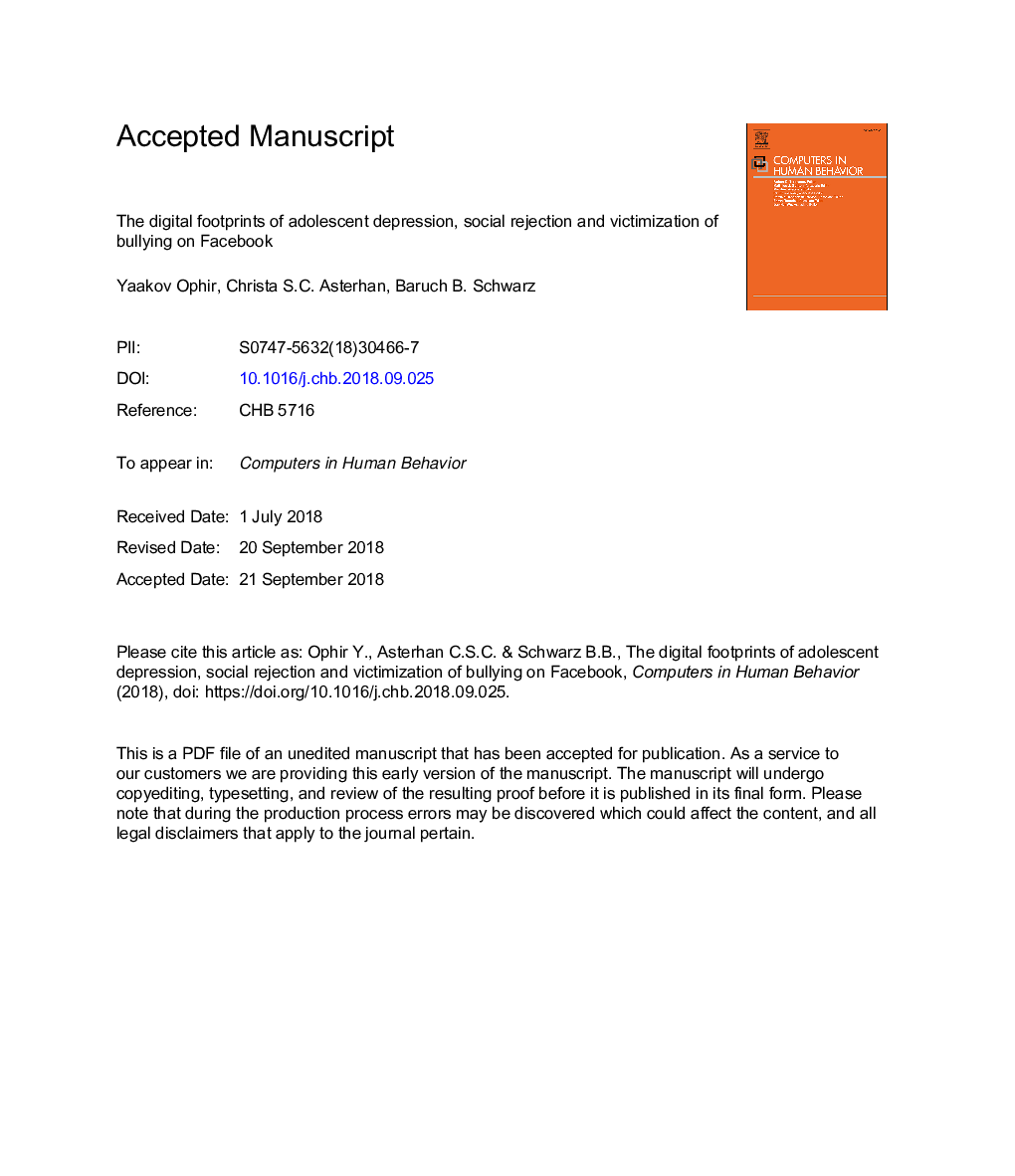| Article ID | Journal | Published Year | Pages | File Type |
|---|---|---|---|---|
| 11024005 | Computers in Human Behavior | 2019 | 38 Pages |
Abstract
Online Social Networking Sites (SNSs) are immensely popular, especially among adolescents. Activity on these sites leaves digital footprints, which may be used to study online behavioral correlates of adolescent psychological distress and to, ultimately, improve detection and intervention efforts. In the present work, we explore the digital footprints of adolescent depression, social rejection, and victimization of bullying on Facebook. Two consecutive studies were conducted among Israeli adolescents (Nâ¯=â¯86 and Nâ¯=â¯162). We collected a range of Facebook activity features, as well as self-report measurements of depression, social rejection, and victimization of bullying. Findings from Study 1 demonstrate that explicit distress references in Facebook postings (e.g., "Life sucks, I want to die") predict depression among adolescents, but that such explicit distress references are rare. In Study 2, we applied a bottom-up research methodology along with the previous top-down, theory driven approach. Study 2 demonstrates that less explicit features of Facebook behavior predict social rejection and victimization of bullying. These features include 'posts by others', 'check-ins', 'gothic and dark content', 'other people in pictures', and 'positive attitudes towards others'. The potential, promises and limitations of using digital Facebook footprints for the detection of adolescent psychological distress are discussed.
Related Topics
Physical Sciences and Engineering
Computer Science
Computer Science Applications
Authors
Yaakov Ophir, Christa S.C. Asterhan, Baruch B. Schwarz,
